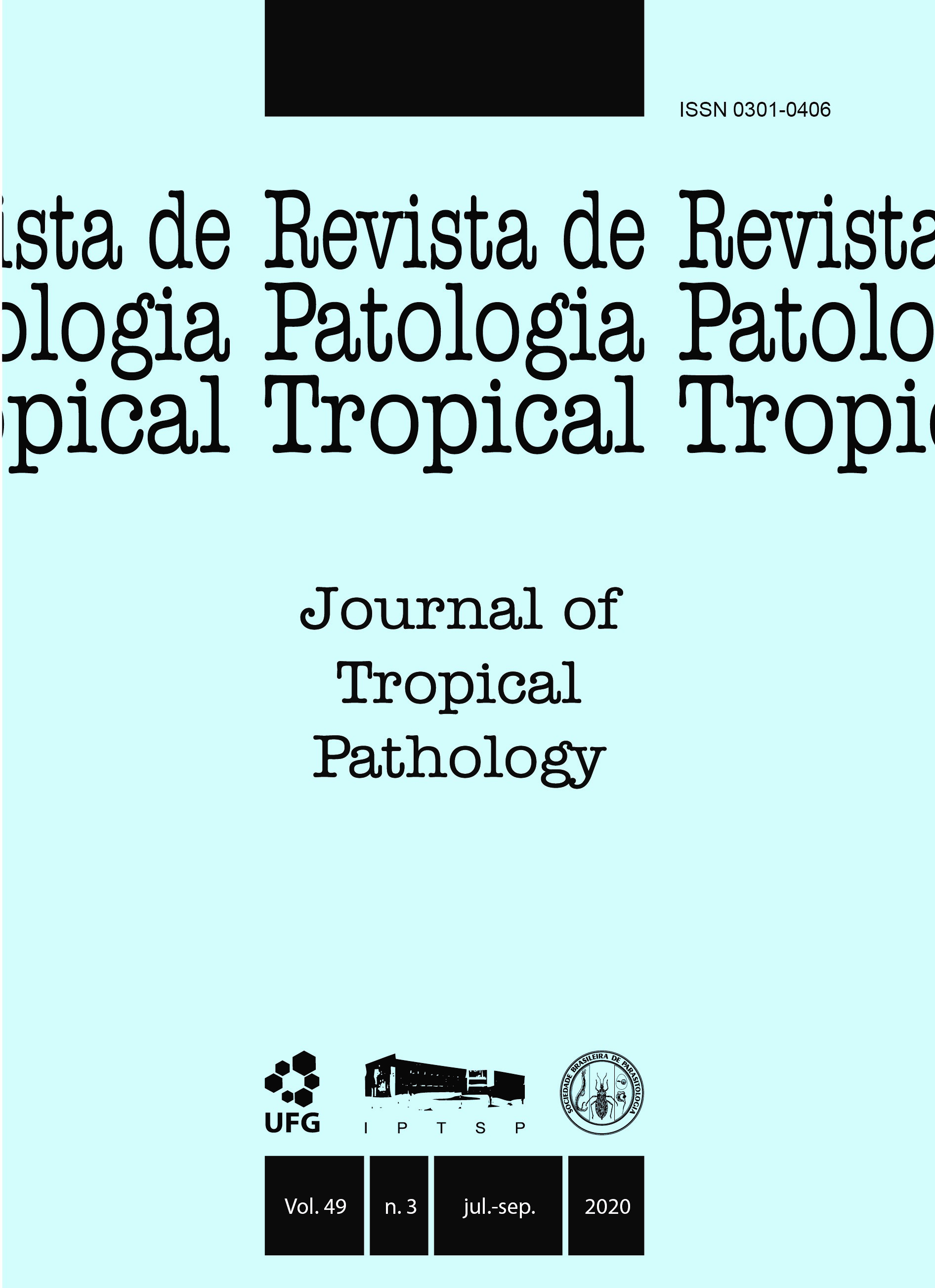Accuracy in clinical examinations for the diagnosis of vulvovaginitis by CANDIDA SPP. and IN VITRO susceptibility to the main antifungals
DOI:
https://doi.org/10.5216/rpt.v49i3.64233Abstract
Vulvovaginal candidiasis (VVC) is a common infection. This work aims to determine the positive predictive value (PPV) of the clinical diagnosis of VVC and to characterize Candida species isolated from the vaginal mucosa. This cross-sectional study was conducted from February 2016 to February 2017 at the Gynecology and Obstetrics Outpatient Clinic of the Hospital das Clínicas, in Goiânia, Goiás State, Brazil. The study included samples of vaginal secretion from 55 women who complained of vaginal discharge and itching as their main symptoms. The PPV of the clinical diagnosis of VVC was estimated in comparison to the laboratory culture method. The phenotypic methods and molecular tests were performed to identify Candida spp. In vitro susceptibility of Candida spp. isolates to fluconazole, itraconazole, clotrimazole, nystatin, and amphotericin B was determined using the broth microdilution assay. Yeast growth using the enzymes protease, phospholipase, and hemolysin was carried out in media containing respectively bovine albumin, egg yolk, and sheep erythrocytes. A PPV of 61.8% (34/55) was determined. Among the 55 vulvovaginal samples collected, we identified 36 isolates in which
C. albicans was the most common species. High resistance to fluconazole and low minimal inhibitory concentration (MIC) values for clotrimazole, nystatin and amphotericin B were observed. All isolates were proteinase and hemolysin producers, while seven strains were phospholipase negative. The clinical diagnosis of VVC presented a moderate PPV, which meant that cultures had to be conducted in the laboratory to confirm infection. The high resistance to fluconazole and itraconazole indicated the importance of the in vitro susceptibility test.
KEY WORDS: Vulvovaginal candidiasis; antifungal susceptibility; enzymatic activity
Downloads
Downloads
Published
How to Cite
Issue
Section
License
The manuscript submission must be accompanied by a letter signed by all authors stating the full name and email address, confirming that the material has not been published or is under consideration for publication elsewhere, and agreeing to transfer copyright in all media and formats for Journal of Tropical Pathology. The authors will not be paid for published articles. They are solely responsible for the content of those articles, even if the Editor holds the right to adjust them to the norms of the journal.
The reviewers will not be paid for the peer review process.

